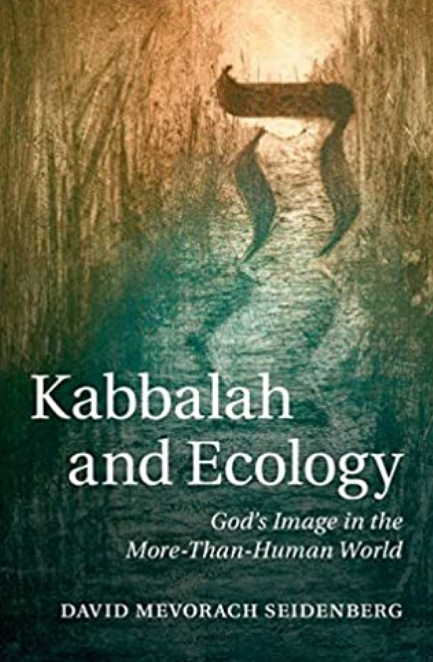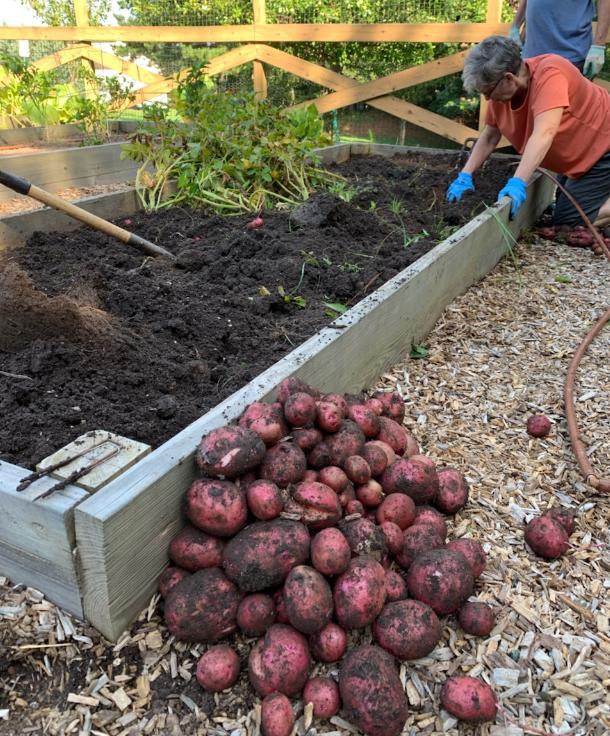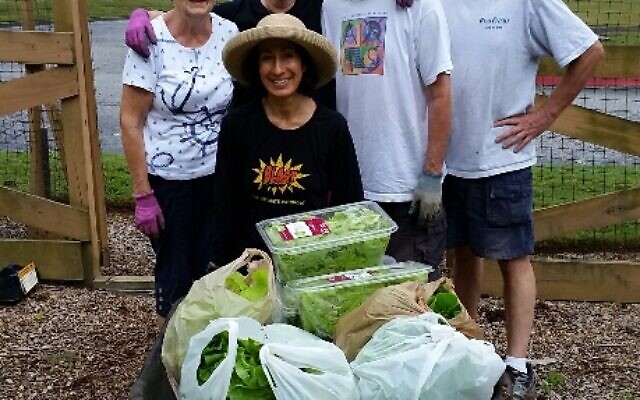Gardening That Teaches More Than One Way to Grow
Community gardens can take on deeper spiritual meaning for Jews.
For a dedicated group of gardeners at Temple Emanu-El, the spring holiday of Passover takes on special meaning. Not only can they look forward to celebrating a holiday of renewal and freedom, they can start to work again in the synagogue garden that always comes to life after the chill of winter.
They are continuing to work in their garden during the health crisis but are doing so with care and safety.
The garden project originated 15 years ago when temple congregants were challenged by guest speaker Bill Bolling, who founded and ran the Atlanta Community Food Bank for many years, to do something as individuals about the problem of hunger in America.
Temple Emanu-El’s answer is its “Garden of Isaiah,” named after the Hebrew prophet who implored Israel toward the end of his biblical message to “feed the hungry and help those in trouble. Then your light will shine out from the darkness.”
The congregational garden, which takes up what was once a rarely used corner of the synagogue’s parking lot, has indeed become a “light” for the dozen or so congregants who work there.
The temple’s president, Robert Wittenstein, maintains that the effort has done more than just grow food for those in need.
“The Garden of Isaiah has become sort of a bedrock for our social action at Temple Emanu-El,” he says. “It’s both something we do to help our community, but it’s also something that allows our members to be more connected to the synagogue and connected to each other.”
In the Torah, the Jewish connection to the land and how it sustains us is an integral part of our religious teaching. The first man in the creation story of Genesis, Adam, came from the earth, which in Hebrew is called “adamah,” and he is named after it.
For Rabbi David Seidenberg, whose authoritative book “Kabbalah and Ecology” was published five years ago, there is no more important relationship than the one we have with nature and the land.

“It says in the second chapter of Genesis that we are to serve the land, not the land to serve us; that creation itself needed us to fill that role,” he said in a phone conversation with the AJT.
Every major holiday in Judaism, he observed, is intimately connected to the cycles of the land. That is particularly the case with the Passover spring holiday.
“Liberation is connected with spring. And that makes sense,” Rabbi Seidenberg pointed out. “It makes sense on a psychological level, on a spiritual level, on a mystical level, on a metaphysical level. When we celebrate Passover, we’re also celebrating moving into the time of growth and spiritual aliveness and being part of the natural world. And that’s why in some observant homes it’s a custom to read the Song of Songs at the seder.”
During the last decade there’s been a renewed interest in Jewish communal gardens. The JCC Association of North America has asked member JCCs to establish and expand community gardens as part of a healthy food and hunger-relief initiative.
The Jewish Federation of Greater Atlanta has also been supportive of the community movement over the past several years. It has made Camp Ramah Darom, the Conservative movement’s youth camp and retreat center in the North Georgia mountains, part of their Jewish Farming Initiative.
Jewish environmental programs are part of year-round programs for adults and young people. The facility grows some of its own food on a 185-acre site. It has apple, plum and pear trees that are just beginning to bloom. Soon the camp’s herb seedlings will be transplanted outdoors.
For religious thinkers like Rabbi Seidenberg, such education is crucial if we are to survive all the ecological challenges we face.
“If we don’t change how we think about the world and how we live in the world and with the world, we’re not going to overcome it through technology,” he

maintains. “So that was our ancestors’ position also. This is not a technological problem. It’s a spiritual problem. How do you cope? How do you create a great relationship with the earth?”
The gardeners at Temple Emanu-El believe they’ve found one way to create a great relationship and to help others as they dig into the soil earnestly, again, in the weeks before Passover.
Last year, the most successful year for the temple garden, over 1,500 pounds of produce was grown. This year they are looking for another bumper crop, while at the same time working, individually, to boost local food distribution programs in the community, such as the Atlanta Community Food Bank, the Community Assistance Center and Malachi’s Storehouse.
Wittenstein, who’s become an expert potato grower, feels the garden has taught some valuable lessons.
“Not only do we deliver fresh vegetables every week to those who need it, it’s sharpened our whole synagogue’s approach to dealing with hunger in the community.”




comments